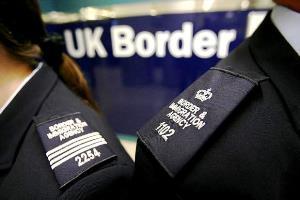 Leila was contacted by a renowned criminal lawyer from Tel Aviv, Orit Chayon, on 26 January 2016 to ask that she assist a female client who had been arrested at the South Terminal of Gatwick Airport during transit from Mexico to India. The client was an Israeli national and was traveling home having spent six months in the United States.
Leila was contacted by a renowned criminal lawyer from Tel Aviv, Orit Chayon, on 26 January 2016 to ask that she assist a female client who had been arrested at the South Terminal of Gatwick Airport during transit from Mexico to India. The client was an Israeli national and was traveling home having spent six months in the United States.
The extradition was sought pursuant to a European Arrest Warrant issued by the Berlin Public Prosecutor's Office on 19 November 2008. It was an accusation warrant and the allegation was that our client had a total of 7,673.73kg of cannabis resin in New Delhi, India for the purposes of importing it into the Republic of Germany, which she did partly by plane and by post. The maximum sentence for this offence in Germany is 15 years imprisonment.
The client confirmed that she had no knowledge of the allegation against her in Germany and had never received any communication from the German authorities at all. It was her case that she was in New Delhi in 2008 at the material time and had her suitcase stolen from a luggage room at a backpackers’ hotel. The suitcase contained her clothing and personal documents including copies of ID documents. These were all in the exhibits on the prosecution file.
Leila instructed James Stansfeld of Furnival Chambers – an expert extradition barrister – to deal with the advocacy in this matter. An application for bail was made and the client was granted bail with stringent conditions to remain in the UK until her full hearing scheduled for 24 March 2016. The defence submitted that extradition was barred pursuant to section 12A of the Extradition Act 2003, i.e. the absence of prosecution decision, which states:
- (1) A person's extradition to a category 1 territory is barred by reason of absence of prosecution decision if (and only if)—
- (a) it appears to the appropriate judge that there are reasonable grounds for believing that—
- (i) the competent authorities in the category 1 territory have not made a decision to charge or have not made a decision to try (or have made neither of those decisions), and
- (ii) the person's absence from the category 1 territory is not the sole reason for that failure,
- (a) it appears to the appropriate judge that there are reasonable grounds for believing that—
- and
- (b) those representing the category 1 territory do not prove that—
- (i) the competent authorities in the category 1 territory have made a decision to charge and a decision to try, or
- (ii) in a case where one of those decisions has not been made (or neither of them has been made), the person's absence from the category 1 territory is the sole reason for that failure.
- (b) those representing the category 1 territory do not prove that—
- (2) In this section “to charge” and “to try”, in relation to a person and an extradition offence, mean—
- (a) to charge the person with the offence in the category 1 territory, and
- (b) to try the person for the offence in the category 1 territory.
The defence submitted that there were clear reasons to believe that a decision had not been taken to charge or try the client. Firstly, the EAW was issued by the Public Prosecutor’s Office. This indicated charges had not been made, otherwise the court considering the indictment would have issued the EAW. Secondly, it is a prerequisite for completing the investigation stage in Germany for the accused to be examined (in person or in writing). This had not happened in our client's case and therefore it was not possible for the German authorities to have made a decision to charge her. As a consequence there were reasonable grounds for believing that the case was not before a competent court (an indictment having not been issued) and therefore there had been no decision to put her on trial.
In the meantime, we advised the client to make an offer under Section 21 of the Extradition Act to voluntarily speak to the German authorities.
Whilst the Crown were considering making the request, Leila found a top extradition lawyer in Frankfurt - Oliver Wallasch of Wallasch & Koch, who obtained the prosecution file for us prior to being instructed. It transpired that the co-defendant had pleaded and had only mentioned our client at the sentencing hearing, clearly to get a more lenient sentence.
The client formally instructed Oliver Wallasch who made representations to the prosecution to withdraw the EAW. They agreed to withdraw it without setting any bail conditions or making any arrangements for the mutual assistance procedure.
Westminster consequently discharged our client and the full hearing did not take place, concluding a difficult and challenging case that required thorough and diligent preparation.
Contact Lewis Nedas Expert Extradition Solicitors
This is another in a long line of extradition successes for Leila Abdul-Rasool and the excellent James Stansfield of Furnival Chambers. If you are facing extradition proceedings and need expert advice please call us on 0207 387 2032 or complete our online enquiry form here.
Top Ranked Lawyers: Legal 500
Celebrating 40 years of practice in 2022, we are leaders in criminal defence, serious fraud, serious crime and many other areas of legal practice. We have been involved in many leading cases over the last 40+ years and are well known for our genuinely high acquittal rate and overall success rate. Please click the Legal 500 logo below for more information about our rankings.











